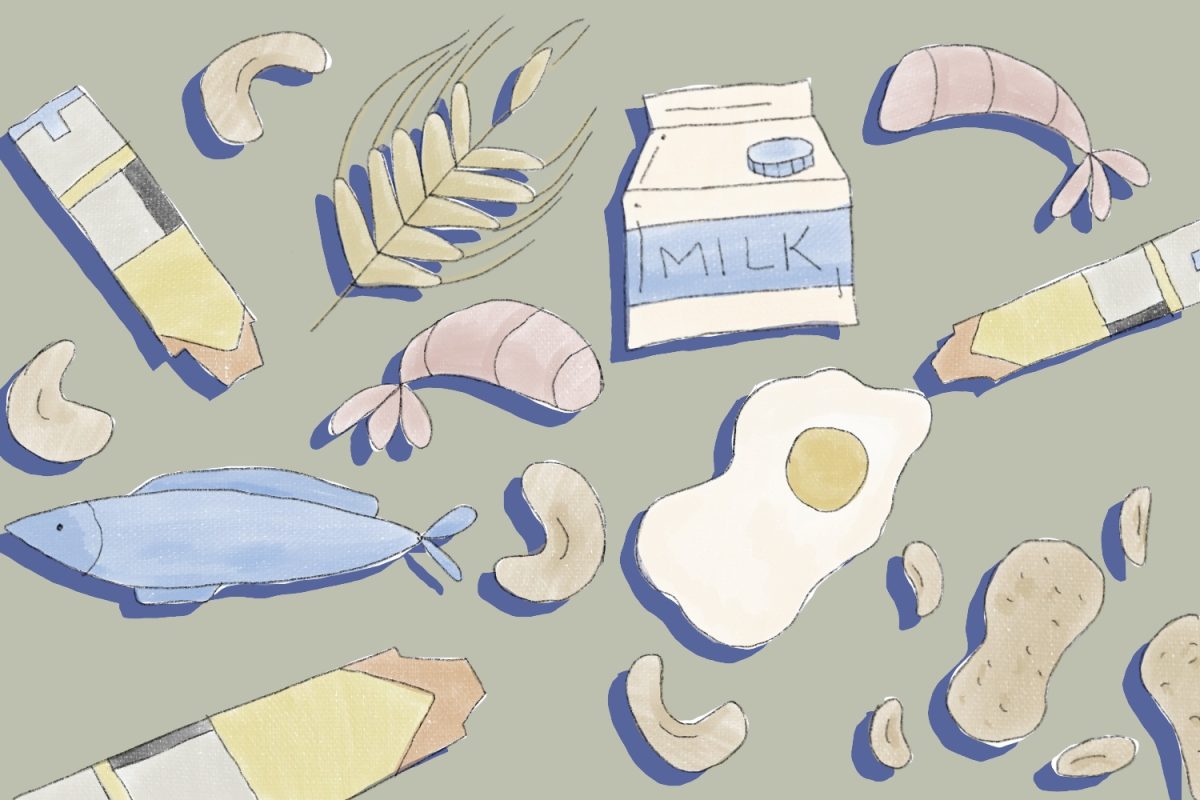Content warning: death, ableism
On Jan. 11, 25 year old Órla Baxendale died of anaphylactic shock from peanuts after eating a mislabeled cookie, according to a Jan. 25 CBS article.
The victim blaming I have seen following this tragedy is atrocious. One comment stated, “If you have a bad allergy to nuts do not eat packaged or processed food of any kind,” according to a Jan. 24 @redsneakersforoakley Instagram post.
Another comment on the same post stated, “Florentines are a cookie full of nuts,” as if she should have just known, despite it being a strict law that packaged foods must be clearly labeled with all major food allergens.
Unfortunately, this is not the only time in my life I have seen comments like these. As someone with multiple severe food allergies, my allergies have been the butt of the joke since I was diagnosed in elementary school.
I’m so sick of the nauseous pit in my stomach every time I see someone make a joke about a disability that could end in death.
Food allergies are an invisible disability, or a disability that is not immediately apparent to others while still impacting a major life function. Invisible disability is an umbrella term that can include anything from autism spectrum disorder, to diabetes, to epilepsy, to mental health disorders, according to UMass Amherst.
Food allergies are considered a disability under the Americans with Disabilities Act, according to the American Academy of Allergy Asthma and Immunology.
Comments like the ones following this tragic death by negligence are just one new example of the ableism that comes with having an invisible disability.
“The 80s weren’t perfect, but I’ll tell you what they didn’t have. There weren’t safe spaces, there were no trigger warnings, and there were no fucking peanut allergies,” said comedian Christina P. in her Netflix special “Mom Genes.”
The comedian goes on to explain how food allergies are equivalent to a failure of natural selection.
This is not the only place I’ve heard this joke. The internet, and even mainstream media, is full of jokes about food allergies being a weakness, and how we should just get over it.
Additionally, Uber Eats’s new Super Bowl commercial, released only one month after this tragedy, pokes fun at peanut allergies, showing a man having an allergic reaction while asking, “There’s peanuts in peanut butter?”
“At Food Allergy Research & Education, we were surprised and disappointed to see that Uber Eats would use the disease of life-threatening food allergy as humor in its new Super Bowl commercial, Don’t Forget UberEats. The suffering of over 33 million Americans who live with life-threatening food allergy is no joke,” stated by FARE in a Feb. 7 announcement.
Jokes like these are why it took me years to come to terms with the fact that my allergies are a disability, even though the ADA and medical professionals have confirmed it is one. I still don’t feel valid using this label a lot of the time.
However, I now recognize that people’s comments like these are not ok, and I am not just being “sensitive” or “overreacting.” Yes, they are just trolls on the internet, but it’s perpetuating and normalizing harmful ableist ideas nonetheless.
If you are not the one with the disability, you have no right to comment on it.
My allergies are not a choice; they are a very real possibility of death even if I do everything right to prevent it, just like Baxendale did.
Moreover, being inclusive and open-minded to those like me does not do you any harm. Invisible disabilities are not more or less valid than those you can see, just different and equally deserving of respect.
It is time to stop tolerating ableism disguised as a joke. I will no longer laugh along and pretend that you are not perpetuating prejudice.










